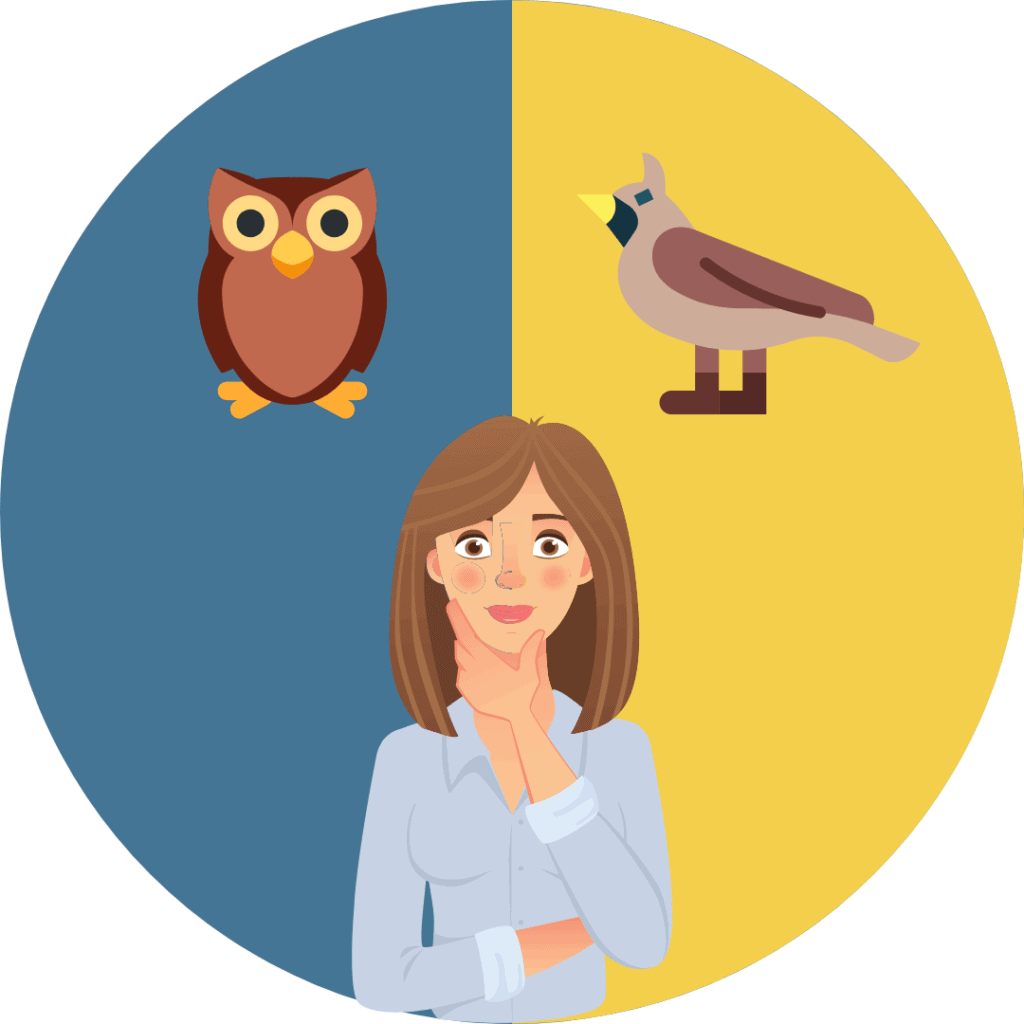What Is A Chronotype?
Research shows that your bedtime may actually be linked to your DNA! Everyone’s biological clock is wired differently; it’s not in sync. Environmental and genetic factors affect your circadian rhythm, or your internal clock. Circadian rhythms, in turn, influence your sleeping pattern.
Your preferred sleeping pattern is called your ‘chronotype.’ Going to sleep around 11 PM and waking up around 7 AM puts you in the average chronotype category. Someone with an average chronotype gets roughly the same amount of sleep on both working and non-working days, and this is good.
About 40% of the population does not belong to this category. They have late or early chronotypes. These people will find it pretty difficult to go to work after a free day. They may even experience symptoms of jet lag.
What contributes to the difference in chronotypes?
Melatonin: The Sleep Hormone
Melatonin is the "sleep hormone" that regulates the sleep-wake cycle in the body. It is produced by a neuron bundle called Suprachiasmatic Nucleus or SCN for short.
For people with the average chronotype, melatonin production starts around 9 PM, and the whole body enters into the 'rest mode' by 10:30 PM. The body temperature enters its lowest around 4:30 AM. These people usually wake up around 6:45 AM when the blood pressure spikes to the highest point. They are known as the 'early risers' and are alert and active during the daytime.
For people with the late chronotype, this whole cycle happens later during the day. As a result, they tend to sleep and wake up much later.
They may not entirely be able to fix this. This is because the CLOCK genes found in the SCN neuron bundle regulate the 24-hour cycle in your body. Changes in the CLOCK genes influence your chronotype status - average, or early, or late.
A study was carried out on hamsters to study the contributing factors to chronotype. Scientists replaced the SCN of early chronotype hamsters with that of average chronotype hamsters. To their surprise, the hamsters still went to sleep and woke up early, according to their early chronotype.
This is because, other than the SCN clock, the body also contains other biological clocks, all of which contribute to a person’s chronotype. And, this is why it can be very difficult to break out of your natural sleeping pattern.
Chronotype Genetic Test
To know what your chronotype is based on your genes, you can get a genetic test done. Most genetic tests provide your DNA information in the form of a text file called the raw DNA data. At Xcode Life, can help you interpret this data.
All you have to do is upload your raw data and order a sleep report. Xcode Life then analyzes your raw data in detail to provide you with a comprehensive sleep analysis, including information on your chronotype and risk for various sleep disorders.





